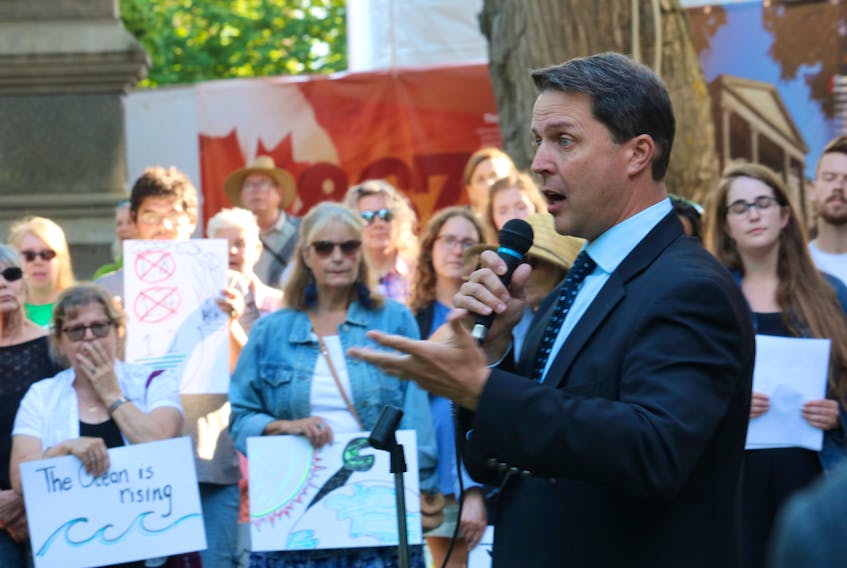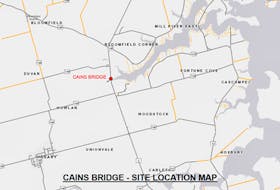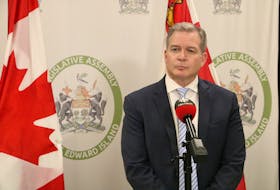CHARLOTTETOWN, P.E.I. — Environment minister Brad Trivers said the Island could end the recent practice of providing free drivers’ licences and reduced costs for vehicle registration.
The elimination of drivers’ licensing fees, as well as a reduction in registration costs for gasoline-powered vehicles, was introduced by the previous Liberal government as part of the Island’s carbon tax. The cost of eliminating these fees was funded by revenue derived from a modest tax on gasoline and diesel fuels.
In an interview, Trivers suggested the fee reductions, the funding for which came out of his department, were not an effective way of mitigating climate change.
“Obviously, one of the ways to reduce carbon emissions is by burning less fuel,” Trivers said.
“If you’re actually giving people free drivers’ licences and discounts on registrations to go drive, you can see that it actually doesn’t help with decreasing the amount of fuel they’re going to burn in their vehicles.”
During question period on Thursday, Liberal MLA Gord McNeilly referred to media interviews by Trivers, in which he suggested fee reductions might be eliminated. "You indicated you are open to changing this policy. Are you really considering eliminating free drivers licensing for Islanders?" McNeilly asked Trivers.
"Yes, I don't think they are contributing to climate adaptation or climate change mitigation. So I think it's something we really do need to consider," Trivers said in response.
“When it comes to drivers’ licences, maybe that's something we would consider, some sort of means tested program for people who may be able to afford a car but are having trouble getting the driver's licence and registration."
-MLA Brad Trivers
McNeilly then asked where funds obtained from licence registration would be allocated.
Trivers suggested a program might be implemented that provides a discount based on the income of applicants for drivers’ licences.
“When it comes to drivers’ licences, maybe that's something we would consider, some sort of means-tested program for people who may be able to afford a car but are having trouble getting the driver's licence and registration,” Trivers told the legislature.
Trivers said he was currently in discussions with staff in his department. He said many staff members have told him the policy introduced by the Liberals was ineffective in terms of climate policy.
As part of a national carbon pricing regiment initiated by the federal government, P.E.I. imposed a tax on fossil fuels of around four cents per litre, but cut gasoline excise taxes by three cents. The remaining one cent per litre tax, which came into effect in April, funded the elimination of drivers’ licensing fees and a reduction in vehicle registration fees.
The Liberal government claimed at the time the tax on carbon would be revenue-neutral and would be returned back to Islanders.
Trivers said discussions in his department about carbon pricing are still considering a revenue-neutral model.
“There’s a difference between being revenue-neutral and mitigating climate change,” Trivers told The Guardian.
Trivers also said the creation of a new special committee on climate change would help policymakers best decide on ways to reduce emissions.
The committee was created with support from the Green, Progressive Conservative and Liberal members in the legislature on Thursday, and followed the passage of a bill on Tuesday that will see P.E.I. adopt a more stringent emissions reduction target by 2030.









